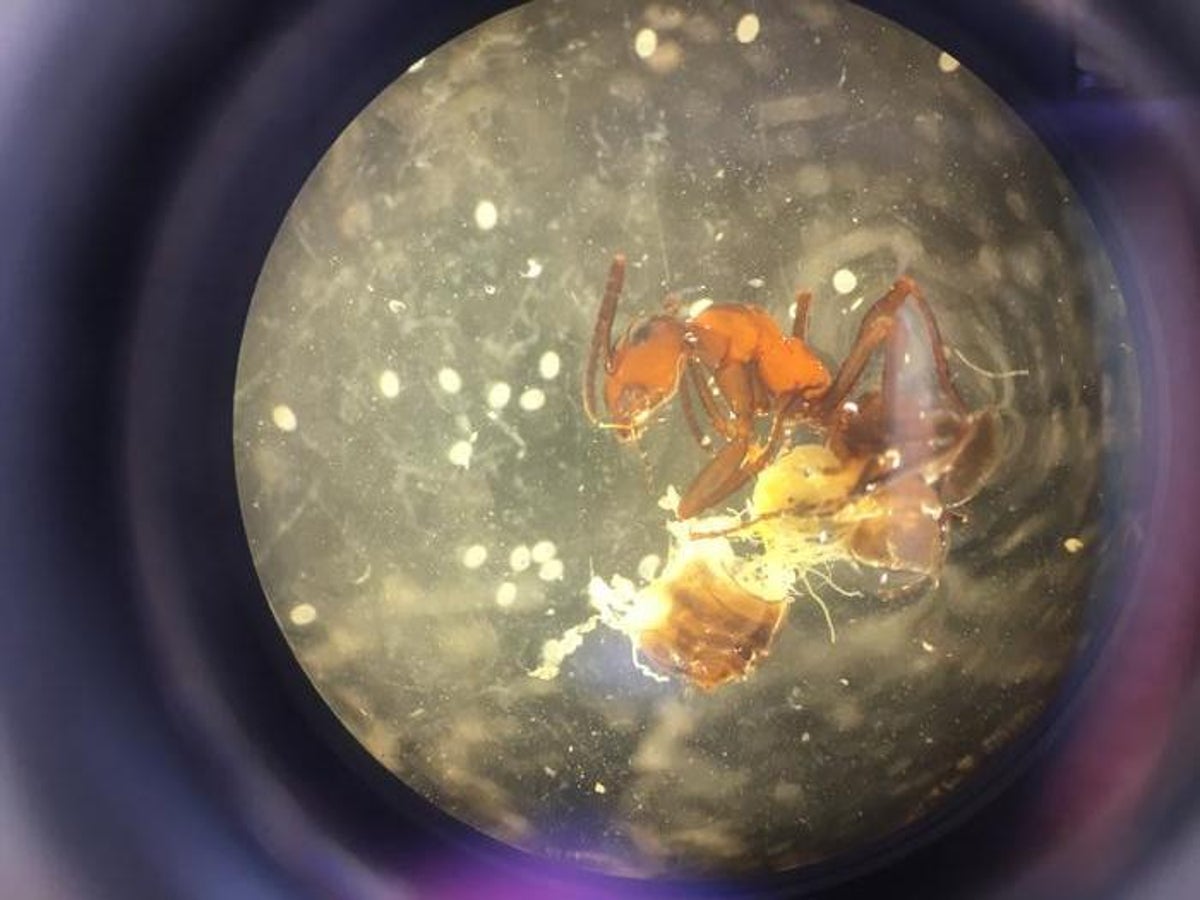
A parasite that notoriously turns ants into “zombies” by infecting and taking control of their brains is “even more cunning” than previously thought, according to scientists.
The lancet liver fluke parasite is capable of getting ants to avoid the sun’s deadly rays when the day gets too hot, enabling the insects to live long enough to spread the parasite further into other hosts, found researchers, including those from the University of Copenhagen in Denmark.
The liver fluke can even get the ant to crawl back down the blade of grass when it gets too hot in the day, found the new study, published recently in the journal Behavioral Ecology.
The parasite, whose lifecycle spans creatures like snails and even grazing animals like cows, is known for its ability to take control of the brains of ants, causing them to cling to blades of grass against their will.
Ants infected with the fluke worm involuntarily move to and clamp their powerful jaws atop a swaying blade of grass, making the unsuspecting insect more likely to be eaten by grazers such as cattle and deer.
“Getting the ants high up in the grass for when cattle or deer graze during the cool morning and evening hours, and then down again to avoid the sun’s deadly rays, is quite smart,” study co-author Brian Lund Fredensborg said in a statement.
“Our discovery reveals a parasite that is more sophisticated than we originally believed it to be,” Dr Fredensborg said.
The unsuspecting ant climbs up and clamps its powerful jaws onto the top of a blade of grass, making it more likely to be eaten by grazers such as cattle and deer— (University of Copenhagen)
In the new study, scientists tagged several hundred infected ants in the Bidstrup Forests near Roskilde, Denmark, allowing them to keep track of the insects for longer periods of time.
They then observed the ants’ behaviour in relation to changes in environmental conditions such as light, humidity, time of day and temperature.
They found temperature had an effect on ant behaviour.
When the temperature was lower, ants were more likely to be attached to the top of a blade of grass.
But when the mercury increased, ants relinquished the grass and crawled back down.
“We found a clear correlation between temperature and ant behavior. We joked about having found the ants’ zombie switch,” Dr Fredensborg said.
Previous research found that when a liver fluke infects the ant, several hundred parasites invade the insect’s body – but only one makes its way to the brain.
This single liver fluke parasite influences the host’s behaviour while the others conceal themselves in a capsule to protect themselves in the ant’s abdomen.
“We now know that temperature determines when the parasite will take over an ant’s brain. But we still need to figure out which cocktail of chemical substances the parasite uses to turn ants into zombies,” Dr Fredensborg concluded.







